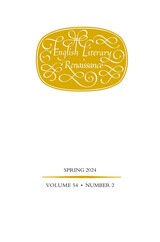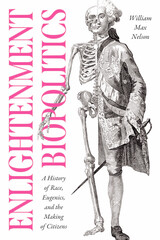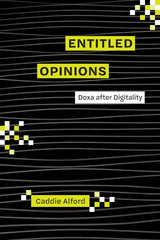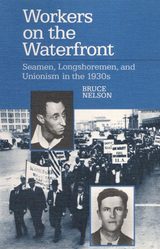
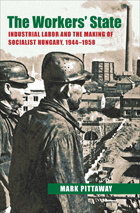
In The Workers’ State, Mark Pittaway presents a groundbreaking study of the complexities of the Hungarian working class, its relationship to the Communist Party, and its major political role during the foundational period of socialism (1944–1958). Through case studies of three industrial centers—Újpest, Tatabánya, and Zala County—Pittaway analyzes the dynamics of gender, class, generation, skill level, and rural versus urban location, to reveal the embedded hierarchies within Hungarian labor. He further demonstrates how industries themselves, from oil and mining to armaments and textiles, possessed their own unique labor subcultures.
From the outset, the socialist state won favor with many workers, as they had grown weary of the disparity and oppression of class systems under fascism. By the early 1950s, however, a gap between the aspirations of labor and the goals of the state began to widen. In the Stalinist drive toward industrialization, stepped up production measures, shortages of goods and housing, wage and benefit cuts, and suppression became widespread.
Many histories of this period have focused on Communist terror tactics and the brutal suppression of a pliant population. In contrast, Pittaway’s social chronicle sheds new light on working-class structures and the determination of labor to pursue its own interests and affect change in the face of oppression. It also offers new understandings of the role of labor and the importance of local histories in Eastern Europe under communism.

Can the welfare system in the United States accord people dignity? That question is often left out of the current debates over welfare and workfare. In this provocative book, Nancy Rose argues that the United States has been successful in the past––notably during the New Deal and in the 1970s––at shaping programs that gave people “fair work.”
However, as Rose documents, those innovative job creation programs were voluntary and were mainly directed at putting men back to work. Women on welfare, and especially women of color, continue to be forced into a very different kind of program: mandatory, punitive, and demeaning. Such workfare programs are set up for failure. They rarely train women for jobs with futures, they ignore the needs of the women’s families, and they do not pay an honest wage. They perpetuate poverty rather than prevent it.
Rose uses the history of U.S. job creation programs to show alternatives to mandatory workfare. Any effort to redesign welfare in America needs to pay close attention to the lessons drawn from this perceptive analysis of the history of women, welfare, and work. This is an indispensable book for students, scholars, policymakers, politicians, and activists––for everyone who knows the system is broken and wants to fix it.
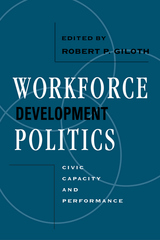
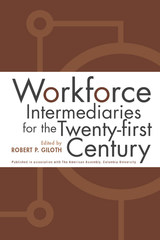

These are the words with which Margaret, a thirty-three-year-old cocaine-using prostitute, begins her story. In this book, she and four other women, all inner-city hustlers, describe their lives, how they came to be where they are, and where they hope to go.
Margaret, Charlie, Virginia, Tracy, and Laquita are all drug users who are involved in regular criminal activity: prostitution, burglary, shoplifting, robbery, drug selling, petty theft, and various kinds of fraud. Four of the women are black; one is white and Puerto Rican. While all five have been involved in same-sex relationships, three are primarily straight and two are primarily lesbian. They come from working-class or welfare families; some women characterize their mothers as strict, abusive, intolerant, and distant while other mothers are characterized as being concerned, religious, and loving. The women talk frankly about their drug use, their sexual and criminal activities, their childhoods, their personal relationships with their families of origin, children, partners, their fears and future goals, and the ordinary trappings of their lives.
While these accounts describe lives lived at the margins of society, they also reveal women who practice self-evaluation. These are women who have a deep understanding of individual accountability and responsibility. These accounts are connected by themes of violence and poverty, but they are also connected by the variety and richness of these women's lives. The women also assert a control over their activities and talk of independent judgment in terms that we imagine are reserved for men. There is a tendency in criminology to treat the data generated by research on men as fundamentally true for women as well. By allowing female law-breakers to describe their lives in their own way, Pettiway underlines not only their differences from men but also their differences from each other.
However, their stories also reveal their common humanity and their profound will to survive despite all obstacles. These women manage to live self-defined and self-validated lives in a world even more turbulent than that of their mainstream sisters. They share a web of experiences created out of race and ethnicity, sexual orientation, drug use, and urbanization that provides them with meaning and courage. They speak movingly about guilt and responsibility, about rape and intimacy, and about ambition and despair. Through their stories we can grasp the traumas and turning points that lead us all to make bad decisions as well as those ideals and inspirations that can help to redeem us.
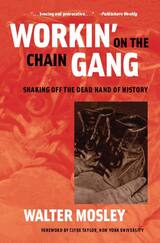
A passionate examination of the social and economic injustices that continue to shackle the American people
Praise for Workin’ on the Chain Gang:
“. . . bracing and provocative. . . .”
—Publishers Weekly
“. . . clear-sighted . . . Mosley offers chain-breaking ideas. . . .”
—Los Angeles Times Book Review
“[A] thoroughly potent dismantling of Yanqui capitalism, the media, and the entertainment business, and at the same time a celebration of rebellion, truth as a tool for emancipation, and much else besides. . . .”
—Toronto Globe and Mail
“Workin’ on the Chain Gang excels at expressing feelings of ennui that transcend race. . . . beautiful language and penetrating insights into the necessity of confronting the past.”
—Washington Post
“Mosley eloquently examines what liberation from consumer capitalism might look like. . . . readers receptive to a progressive critique of the religion of the market will value Mosley’s creative contribution.”
—Booklist
Walter Mosley’s most recent essay collection is Life Out of Context, published in 2006. He is the best-selling author of the science fiction novel Blue Light, five critically acclaimed mysteries featuring Easy Rawlins, the blues novel RL’s Dream, a finalist for the NAACP Award in Fiction, and winner of the Black Caucus of the American Library Association’s Literary Award. His books have been translated into twenty languages. He lives in New York.
Clyde Taylor is Professor of Africana Studies at NYU’s Gallatin School and author of The Mask of Art: Breaking the Aesthetic Contract—Film and Literature.
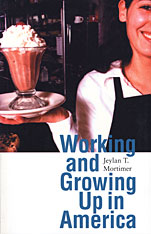
Should teenagers have jobs while they’re in high school? Doesn’t working distract them from schoolwork, cause long-term problem behaviors, and precipitate a “precocious” transition to adulthood?
This report from a remarkable longitudinal study of 1,000 students, followed from the beginning of high school through their mid-twenties, answers, resoundingly, no. Examining a broad range of teenagers, Jeylan Mortimer concludes that high school students who work even as much as half-time are in fact better off in many ways than students who don’t have jobs at all. Having part-time jobs can increase confidence and time management skills, promote vocational exploration, and enhance subsequent academic success. The wider social circle of adults they meet through their jobs can also buffer strains at home, and some of what young people learn on the job—not least, responsibility and confidence—gives them an advantage in later work life.
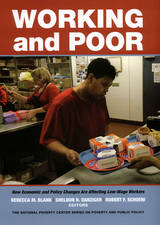
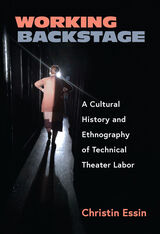
Working Backstage illuminates the work of New York City’s theater technicians, shining a light on the essential contributions of unionized stagehands, carpenters, electricians, sound engineers, properties artisans, wardrobe crews, makeup artists, and child guardians. Too-often dismissed or misunderstood as mere functionaries, these technicians are deeply engaged in creative problem-solving and perform collaborative, intricate choreographed work that parallels the performances of actors, singers, and dancers onstage. Although their contributions have fueled the Broadway machine, their contributions have been left out of most theater histories.
Theater historian Christin Essin offers clear and evocative descriptions of this invaluable labor, based on her archival research and interviews with more than 100 backstage technicians, members of the New York local of the International Alliance of Theatrical Stage Employees. A former theater technician herself, Essin provides readers with an insider’s view of the Broadway stage, from the suspended lighting bridge of electricians operating followspots for A Chorus Line; the automation deck where carpenters move the massive scenic towers for Newsies; the makeup process in the dressing room for The Lion King; the offstage wings of Matilda the Musical, where guardians guide child actors to entrances and exits. Working Backstage makes an significant contribution to theater studies and also to labor studies, exploring the politics of the unions that serve backstage professionals, protecting their rights and insuring safe working conditions. Illuminating the history of this typically hidden workforce, the book provides uncommon insights into the business of Broadway and its backstage working relationships among cast and crew members.
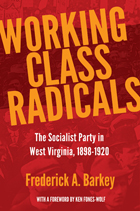
Working Class Radicals: The Socialist Party in West Virginia, 1898-1920 examines the rise and fall of organized socialism in West Virginia through an exploration of the demographics of membership, oral interview material gathered in the 1960s from party members, and the collapse of the party in the wake of the Paint Creek-Cabin Creek coal-mining strike of 1912. The first local branch of the West Virginia Socialist Party was established in Wheeling in 1901 and by 1914 several thousand West Virginians were dues-paying members of local branches. By 1910 local Socialists began to elect candidates to office and in 1912 more than 15,000 West Virginian voters cast their ballots for Socialist presidential candidate Eugene Debs. The progress that West Virginia socialists achieved on the electoral front was a reflection of the party’s strategy of increasing class-consciousness by working with existing unions to build the power of the labor movement. The party appealed to a fairly broad cross section of wage earners and its steady growth also owed much to the fact that many members of the middle class were attracted to the cause. Several factors combined to send the party into rapid decline, most importantly deep fissures between class and craft factions of the party and 1915 legislation making third party political participation difficult. Working Class Radicals offers insight into the various internal and external forces that doomed the party and serves as a cautionary tale to contemporary political leaders and organizers.

anthology of poems captures the drama of work and working-class life in
industrial America. It speaks of rolling mills, mine shafts, and foundries,
and of a people who dig coal, tap blast furnaces, sew shirts, clean fish,
and assemble cars. These subjects, though largely absent from literary
anthologies and textbooks, are increasingly evident in the work of contemporary
poets. Working Classics gathers the best and most representative
of these poems, American and Canadian, from 1945 to the present.
Included are poems by Antler, Robert Bly, Lorna Dee Cervantes, Jim Daniels,
Patricia Dobler, Stephen Dunn, Tess Gallagher, Edward Hirsch, David Ignatow,
June Jordan, Lawrence Joseph, Philip Levine, Chris Llewellyn, Joyce Carol
Oates, Anthony Petrosky, Michael Ryan, Gary Soto, Tom Wayman, James Wright,
and many others. The result is a diverse and evocative collection of 169
poems by 74 poets, nearly a third of them women.
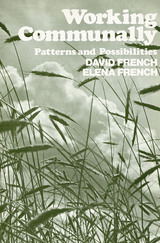
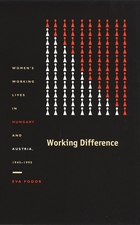
Fodor brings qualitative and quantitative analyses to bear, combining statistical analyses of survey data, interviews with women managers in both countries, and archival materials including those from the previously classified archives of the Hungarian communist party and transcripts from sessions of the Austrian Parliament. She shows how women's access to power varied in degree and operated through different principles and mechanisms in accordance with the stratification systems of the respective countries. In Hungary women's mobility was curtailed by political means (often involving limited access to communist party membership), while in Austria women's professional advancement was affected by limited access to educational institutions and the labor market. Fodor discusses the legacies of Austria's and Hungary's "gender regimes" following the demise of state socialism and during the process of integration into the European Union.
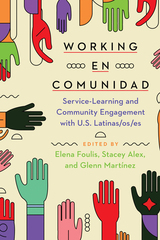
The volume tackles three major themes: ethical approaches to working with Latina/o/e communities within language courses and beyond; preparing Latina/o/e students for working with their own communities in different environments; and ensuring equitable practices and building relationships that are mutually beneficial for students and community members. The editors forward two central arguments: (1) Equitable community engagement in higher education is a reflective and reciprocal process that develops empathy and personal and professional growth in students; and (2) service-learning is most transformative when it explicitly guides students and the community to build cultural humility and recognize Latina/o/e experiences and agency as foundational to the learning process.
Many of the contributors and editors are Latina/o/e-identified scholars, practitioners, and researchers, who lend a rich body of experience and a personal dedication to this work. They present distinct approaches and geographies, as well as range of institutions, to offer a wide scope of engaged work that builds on the concept of comunidad to advance a critical new conceptual framework of equitable education and racial justice.
Contributors
Stacey Alex
Elena Foulis
Christina García
Catherine Komisaruk
Kelly Lowther Pereira
Glenn Martínez
María Luisa Parra-Velasco
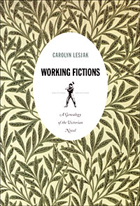
Lesjak demonstrates how the ideological work of the literature of the Victorian era, the “golden age of the novel,” revolved around separating the domains of labor and pleasure and emphasizing the latter as the proper realm of literary representation. She reveals how the utopian works of Morris and Wilde grapple with this divide and attempt to imagine new relationships between work and pleasure, relationships that might enable a future in which work is not the antithesis of pleasure. In Working Fictions, Lesjak argues for the contemporary relevance of the “labor novel,” suggesting that within its pages lie resources with which to confront the gulf between work and pleasure that continues to characterize our world today.

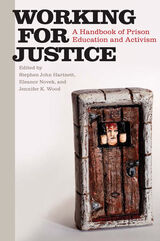

A longtime agitator against war and social injustice, Lawrence Wittner has been tear-gassed, threatened by police with drawn guns, charged by soldiers with fixed bayonets, spied upon by the U.S. government, arrested, and purged from his job for political -reasons. To say that this teacher-historian-activist has led an interesting life is a considerable understatement.
In this absorbing memoir, Wittner traces the dramatic course of a life and career that took him from a Brooklyn boyhood in the 1940s and ’50s to an education at Columbia University and the University of Wisconsin to the front lines of peace activism, the fight for racial equality, and the struggles of the labor movement. He details his family background, which included the bloody anti-Semitic pogroms of late-nineteenth-century Eastern Europe, and chronicles his long teaching career, which comprised positions at a small black college in Virginia, an elite women’s liberal arts college north of New York City, and finally a permanent home at the Albany campus of the State University of New York. Throughout, he packs the narrative with colorful vignettes describing such activities as fighting racism in Louisiana and Mississippi during the early 1960s, collaborating with peace-oriented intellectuals in Gorbachev’s Soviet Union, and leading thousands of antinuclear demonstrators through the streets of Hiroshima. As the book also reveals, Wittner’s work as an activist was matched by scholarly achievements that made him one of the world’s foremost authorities on the history of the peace and nuclear disarmament movements—a research specialty that led to revealing encounters with such diverse figures as Norman Thomas, the Unabomber, Zbigniew Brzezinski, Caspar Weinberger, and David Horowitz.
A tenured professor and renowned author who has nevertheless lived in tension with the broader currents of his society, Lawrence Wittner tells an engaging personal story that includes some of the most turbulent and significant events of recent history.
Lawrence S. Wittner, emeritus professor of history at the University at Albany, SUNY, is the author of numerous scholarly works, including the award-winning three-volume Struggle Against the Bomb. Among other awards and honors, he has received major grants or fellowships from the National Endowment for the Humanities, the American Council of Learned Societies, the Aspen Institute, the United States Institute of Peace, and the John D. and Catherine T. MacArthur Foundation.
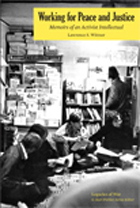
A longtime agitator against war and social injustice, Lawrence Wittner has been tear-gassed, threatened by police with drawn guns, charged by soldiers with fixed bayonets, spied upon by the U.S. government, arrested, and purged from his job for political -reasons. To say that this teacher-historian-activist has led an interesting life is a considerable understatement.
In this absorbing memoir, Wittner traces the dramatic course of a life and career that took him from a Brooklyn boyhood in the 1940s and ’50s to an education at Columbia University and the University of Wisconsin to the front lines of peace activism, the fight for racial equality, and the struggles of the labor movement. He details his family background, which included the bloody anti-Semitic pogroms of late-nineteenth-century Eastern Europe, and chronicles his long teaching career, which comprised positions at a small black college in Virginia, an elite women’s liberal arts college north of New York City, and finally a permanent home at the Albany campus of the State University of New York. Throughout, he packs the narrative with colorful vignettes describing such activities as fighting racism in Louisiana and Mississippi during the early 1960s, collaborating with peace-oriented intellectuals in Gorbachev’s Soviet Union, and leading thousands of antinuclear demonstrators through the streets of Hiroshima. As the book also reveals, Wittner’s work as an activist was matched by scholarly achievements that made him one of the world’s foremost authorities on the history of the peace and nuclear disarmament movements—a research specialty that led to revealing encounters with such diverse figures as Norman Thomas, the Unabomber, Zbigniew Brzezinski, Caspar Weinberger, and David Horowitz.
A tenured professor and renowned author who has nevertheless lived in tension with the broader currents of his society, Lawrence Wittner tells an engaging personal story that includes some of the most turbulent and significant events of recent history.
Lawrence S. Wittner, emeritus professor of history at the University at Albany, SUNY, is the author of numerous scholarly works, including the award-winning three-volume Struggle Against the Bomb. Among other awards and honors, he has received major grants or fellowships from the National Endowment for the Humanities, the American Council of Learned Societies, the Aspen Institute, the United States Institute of Peace, and the John D. and Catherine T. MacArthur Foundation.
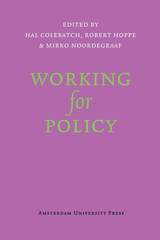
Though democratic government calls for well-designed and implemented policy, there is surprisingly little expert guidance available for policy makers and politicians. Working for Policy fills that gap, addressing the nature of policy work and offering necessary guidance. The contributors bring together academic and experiential knowledge in their analysis and evaluation of what modern policy makers do in given situations and of how such actions contribute to the policy process. This unique book demonstrates how scholars can help to ensure that policy makers can acquire the skills and knowledge required in governing complex modern societies.
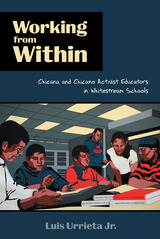
Working from Within is one of the first books to show how identity is linked to agency—individually and collectively—for Chicanas and Chicanos in education. Urrieta set out to answer linked questions: How do Chicanas and Chicanos negotiate identity, ideology, and activism within educational institutions that are often socially, culturally, linguistically, emotionally, and psychologically alienating? Analyzing in-depth interviews with twenty-four educators, Urrieta offers vivid narratives that show how activist identities are culturally produced through daily negotiations.
Urrieta’s work details the struggles of activist Chicana and Chicano educators to raise consciousness in a wide range of educational settings, from elementary schools to colleges. Overall, Urrieta addresses important questions about what it means to work for social justice from within institutions, and he explores the dialogic spaces between the alternatives of reproduction and resistance. In doing so, he highlights the continuity of Chicana and Chicano social movement, the relevance of gender, and the importance of autochthonous frameworks in understanding contemporary activism. Finally, he shows that it is possible for minority activist educators to thrive in a variety of institutional settings while maintaining strong ties to their communities.
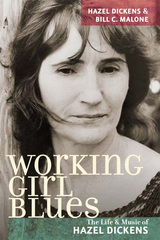
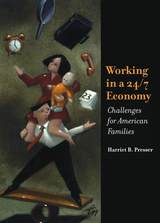

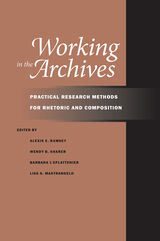
Archival research of any magnitude can be daunting. With this in mind, Alexis E. Ramsey, Wendy B. Sharer, Barbara L’Eplattenier, and Lisa Mastrangelo have developed an indispensable volume for the first-time researcher as well as the seasoned scholar. Working in the Archives is a guide to the world of rhetoric and composition archives, from locating an archival source and its materials to establishing one’s own collection of archival materials. This practical volume provides insightful information on a variety of helpful topics, such as basic archival theory, processes, and principles; the use of hidden or digital archives; the intricacies of searching for and using letters and photographs; strategies for addressing the dilemmas of archival organization without damaging the provenance of materials; the benefits of seeking sources outside academia; and the difficult (yet often rewarding) aspects of research on the Internet.
Working in the Archives moves beyond the basics to discuss the more personal and emotional aspects of archival work through the inclusion of interviews with experienced researchers such as Lynée Lewis Gaillet, Peter Mortensen, Kathryn Fitzgerald, Kenneth Lindblom, and David Gold. Each shares his or her personal stories of the joys and challenges that face today’s researchers.
Packed with useful recommendations, this volume draws on the knowledge and experiences of experts to present a well-rounded guidebook to the often winding paths of academic archival investigation. These in-depth yet user-friendly essays provide crucial answers to the myriad questions facing both fledgling and practiced researchers, making Working in the Archives an essential resource.
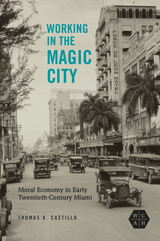

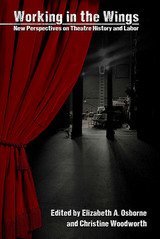
Theatre has long been an art form of subterfuge and concealment. Working in the Wings: New Perspectives on Theatre History and Labor, edited by Elizabeth A. Osborne and Christine Woodworth, brings attention to what goes on behind the scenes, challenging, and revising our understanding of work, theatre, and history.
Essays consider a range of historic moments and geographic locations—from African Americans’ performance of the cakewalk in Florida’s resort hotels during the Gilded Age to the UAW Union Theatre and striking automobile workers in post–World War II Detroit, to the struggle in the latter part of the twentieth century to finish an adaptation of Moby Dick for the stage before the memory of creator Rinde Eckert failed. Contributors incorporate methodologies and theories from fields as diverse as theatre history, work studies, legal studies, economics, and literature and draw on traditional archival materials, including performance texts and architectural structures, as well as less tangible material traces of stagecraft.
Working in the Wings looks at the ways in which workers' identities are shaped, influenced, and dictated by what they do; the traces left behind by workers whose contributions have been overwritten; the intersections between the sometimes repetitive and sometimes destructive process of creation and the end result—the play or performance; and the ways in which theatre affects the popular imagination. This collected volume draws attention to the significance of work in the theatre, encouraging a fresh examination of this important subject in the history of the theatre and beyond.
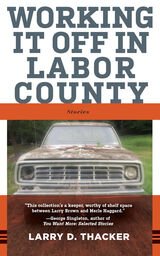
“It seems like everybody but people from here are sure about what we’re about, and they make money being wrong about it.” The residents of Labor County, a fictional small community in the mountains of southeastern Kentucky, may be short on cash, but they are rich in creativity and tirelessly inventive as they concoct new schemes to make ends meet, settle old scores, and work off their debts to society and, in a way, to themselves.
A zealous history professor is caught stealing from the local museum in protest of petty theft; an arsonist strikes it lucky—twice; a skilled leatherworker saddles a turkey and finds a rider; an angel aspires to be a punk rock Roller Derby princess; a grieving artist carves a miracle into a roadside rock face; and affable Uncle Archie produces a seemingly unending supply of new and bizarre items to display in his Odditorium.
More than a collection of tales, Working It Off in Labor County assembles memorable characters who recur across these seventeen linked stories, sharing in one another’s struggles and stumbling upon humor and mystery, the grotesque and the divine, each in many forms.
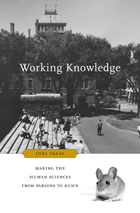
The human sciences in the English-speaking world have been in a state of crisis since the Second World War. The battle between champions of hard-core scientific standards and supporters of a more humanistic, interpretive approach has been fought to a stalemate. Joel Isaac seeks to throw these contemporary disputes into much-needed historical relief. In Working Knowledge he explores how influential thinkers in the twentieth century's middle decades understood the relations among science, knowledge, and the empirical study of human affairs.
For a number of these thinkers, questions about what kinds of knowledge the human sciences could produce did not rest on grand ideological gestures toward "science" and "objectivity" but were linked to the ways in which knowledge was created and taught in laboratories and seminar rooms. Isaac places special emphasis on the practical, local manifestations of their complex theoretical ideas. In the case of Percy Williams Bridgman, Talcott Parsons, B. F. Skinner, W. V. O. Quine, and Thomas Kuhn, the institutional milieu in which they constructed their models of scientific practice was Harvard University. Isaac delineates the role the "Harvard complex" played in fostering connections between epistemological discourse and the practice of science. Operating alongside but apart from traditional departments were special seminars, interfaculty discussion groups, and non-professionalized societies and teaching programs that shaped thinking in sociology, psychology, anthropology, philosophy, science studies, and management science. In tracing this culture of inquiry in the human sciences, Isaac offers intellectual history at its most expansive.

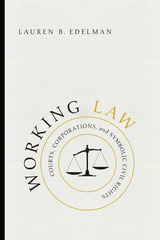
One reason for the limited success of antidiscrimination policies, argues Lauren B. Edelman, is that the law regulating companies is broad and ambiguous, and managers therefore play a critical role in shaping what it means in daily practice. Often, what results are policies and procedures that are largely symbolic and fail to dispel long-standing patterns of discrimination. Even more troubling, these meanings of the law that evolve within companies tend to eventually make their way back into the legal domain, inconspicuously influencing lawyers for both plaintiffs and defendants and even judges. When courts look to the presence of antidiscrimination policies and personnel manuals to infer fair practices and to the presence of diversity training programs without examining whether these policies are effective in combating discrimination and achieving racial and gender diversity, they wind up condoning practices that deviate considerably from the legal ideals.
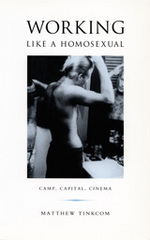
With a special emphasis on the tensions between high and low forms of culture and between good and bad taste, Matthew Tinkcom offers a new vision of queer politics and aesthetics that is critically engaged with Marxist theories of capitalist production. He argues that camp—while embracing the cheap, the scorned, the gaudy, the tasteless, and what Warhol called “the leftovers” of artistic production—is a mode of intellectual production and a critical philosophy of modernity as much as it is an expression of a dissident sex/gender difference. From Minnelli’s musicals and the “everyday glamour” of Warhol’s films to Anger’s experimental films and Waters’s “trash aesthetic,” Tinkcom demonstrates how camp allowed these gay men to design their own relationship to labor and to history in a way that protected them from censure even as they struggled to forge a role for themselves within a system of “value” that failed to recognize them.
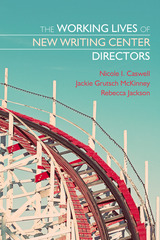
The first book-length empirical investigation of writing center directors’ labor, The Working Lives of New Writing Center Directors presents a longitudinal qualitative study of the individual professional lives of nine new directors. Inspired by Kinkead and Harris’s Writing Centers in Context (1993), the authors adopt a case study approach to examine the labor these directors performed and the varied motivations for their labor, as well as the labor they ignored, deferred, or sidelined temporarily, whether or not they wanted to.
The study shows directors engaged in various types of labor—everyday, disciplinary, and emotional—and reveals that labor is never restricted to a list of job responsibilities, although those play a role. Instead, labor is motivated and shaped by complex and unique combinations of requirements, expectations, values, perceived strengths, interests and desires, identities, and knowledge. The cases collectively distill how different institutions define writing and appropriate resources to writing instruction and support, informing the ongoing wider cultural debates about skills (writing and otherwise), the preparation of educators, the renewal/tenuring of educators, and administrative “bloat” in academe.
The nine new directors discuss more than just their labor; they address their motivations, their sense of self, and their own thoughts about the work they do, facets of writing center director labor that other types of research or scholarship have up to now left invisible. The Working Lives of New Writing Center Directors strikes a new path in scholarship on writing center administration and is essential reading for present and future writing center administrators and those who mentor them.

Working Mandarin for Beginners is designed to enable English-speaking business students and professionals with no prior knowledge of Chinese to develop the basic communication skills necessary for a business trip to China or another work environment in which Mandarin is spoken.
Major features: • Twenty-four lessons, including five review lessons • Clear objectives for acquiring language skills, grammar, and cultural understanding • Lessons cover important basics such as introductions and greetings, counting, reserving a hotel room, taking public transportation, and asking for directions • Lessons cover business tasks such as coordinating and conducting meetings, selling products, and negotiating agreements—all in Chinese • Lessons provide dialogues and vocabulary lists for reading and listening, language points, cultural points, pronunciation drills, grammar, and interactive homework • Course concludes with a special independent project in which the student applies the language to his or her area of business study • Pinyin is used throughout so students can start speaking Mandarin immediately • Includes some basic lessons in the formation of Chinese characters • Course can be combined with affordable online access to self-grading exercises (available through Quia.com, $24.95 per student for 18 months of access)
Student Book • Includes MP3 tracks of dialogues, vocabulary lists, and audio exercises on CD • Lessons are valuable to the classroom student as well as self-directed independent learners
Teacher's Edition • Includes a CD-ROM with all MP3 tracks of dialogues, vocabulary, and audio exercises found on the students' disk • CD-ROM also provides quizzes and exams (including necessary audio), approximately 300 supplementary PowerPoint slides for classroom use, and creative guidance for conversation practice, mini-immersion, and skit
Online teaching features at Quia.com • Instructor-managed class activities and exercises • Monitoring of student progress • Customized grading options online • Students can complete exercises online, submit their answers electronically to their instructor, and receive automatic feedback • Teachers can also use Quia templates to build their own exercises or use exercises developed by other instructors to provide added help for students • Motivated self-directed learners can also access the self-grading online exercises at Quia.com (no instructor feedback will be provided)
SYSTEM REQUIREMENTS
Student's Edition Textbook/MP3 CD (Mac and PC) • CD drive on a computer or conventional CD player with MP3 capability • MP3 player, such as iTunes, RealPlayer, or Windows Media Player • Speakers
Teacher's Edition Textbook/CD-ROM Mac and PC • CD drive on a computer • MP3 player, such as iTunes, RealPlayer, or Windows Media Player • speakers • Adobe Acrobat Reader (available as a free download from http:///www.adobe.com) PC • Windows XP • Microsoft Office 2000 or higher with Service Pack 3 installed (Word and PowerPoint are needed to view and edit some files) • Or, to view the PowerPoints only, download Microsoft PowerPoint Viewer 2003 or higher (free from http://www.microsoft.com) • Fonts for PowerPoints: Arial Unicode and Simsun, which are included in all editions of Office 2000/XP/2003 Mac • Microsoft Word, version Office 2004 or higher • Microsoft PowerPoint, version Office 2004 or higher (Word and PowerPoint are needed to view and edit some files); or view the PowerPoints as PDFs • Fonts for PowerPoints: Arial and Simsun, which are included in Office 2004 and higher
Interactive Exercises on Quia (Mac and PC) • Computer with Internet access, preferably a high-speed connection • Java-enabled browser: Internet Explorer 5 or higher, or any version of Firefox or Safari • The program QuickTime (available as a free download from http://www.quicktime.com) • Microphone to record answers or responses
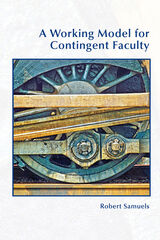
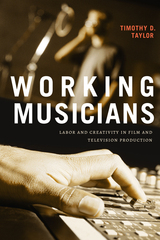
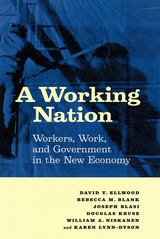
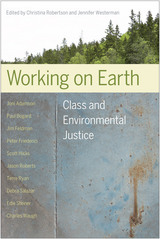
The authors challenge prevailing cultural narratives that separate ecological and human health from the impacts of modern industrial capitalism. Essay themes range from how human survival is linked to nature to how the use and abuse of nature benefit the wealthy elite at the expense of working-class people and the working poor as well as how climate change will affect cultures deeply rooted in the land.
Ultimately, Working on Earth calls for a working-class ecology as an integral part of achieving just and sustainable human development.
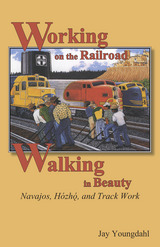
For over one hundred years, Navajos have gone to work in significant numbers on Southwestern railroads. As they took on the arduous work of laying and anchoring tracks, they turned to traditional religion to anchor their lives.
Jay Youngdahl, an attorney who has represented Navajo workers in claims with their railroad employers since 1992 and who more recently earned a master's in divinity from Harvard, has used oral history and archival research to write a cultural history of Navajos' work on the railroad and the roles their religious traditions play in their lives of hard labor away from home.
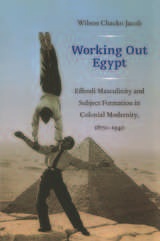
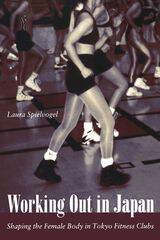
Fitness clubs have proliferated in Japanese cities over the past decade. Yet, despite the pervasive influence of a beauty industry that values thinness above all else, they have met with only mixed success . Exploring this paradox, Spielvogel focuses on the tensions and contradictions within the world of Japanese fitness clubs and on the significance of differences between Japanese and North American philosophies of mind and body. Working Out in Japan explores the ways spaces and bodies are organized and regulated within the clubs, the frustrations of female instructors who face various gender inequities, and the difficult demands that the ideal of slimness places on Japanese women. Spielvogel’s vivid investigation illuminates not only the fitness clubs themselves, but also broader cultural developments including the growth of the service industry and the changing character of work and leisure in Japan.
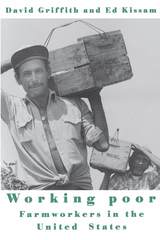
Working Poor investigates the lives and working conditions of migrant farmworkers in seven regions of the United States. The community studies in this volume include descriptions and analyses of the low-income neighborhoods of Immokalee, Florida; Parlier, California; Weslaco, Texas; and Mayagüez, Puerto Rico, where growers and farm contractors put immigrants to work in fruit and vegetable harvests. The authors link farmworker communities that have winter growing seasons with summer labor supply demand regions in the northern United States, in particular south-western Michigan, New Jersey, and the Delmarva Peninsula of Maryland and Delaware.
The authors investigate ethnic succession in the farm labor market and the ways individual farmworkers, farmworker families, and networks organize these migrations and attach themselves to farming operations by a variety of social relations. Framing the portraits of crowded households, the histories of networks, and the ethnic vignettes are three chapters placing the community studies into historical and theoretical perspectives. This broad framework underscores the importance of housing, transportation, networks, labor contracts, and ethnic relations in the organization of low-wage labor markets.
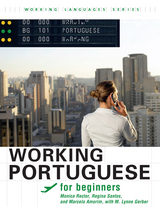
Working Portuguese for Beginners enables English speakers with no prior knowledge of Brazilian Portuguese to develop the basic communication skills and cultural knowledge needed to visit Brazil and to function in a work environment in which Portuguese is spoken. This language program presents not only all the situations and grammar normally covered in an elementary Portuguese textbook but also includes situations set in a business context in every lesson.
Major Features:• Twenty-four lessons, the last four concluding with a special independent project in which the student applies the language to his or her area of professional interest• Clear objectives for acquiring language skills, grammar, and cultural understanding• Lessons cover the important basics normally covered in any beginning Portuguese textbook such as introductions and greetings, counting, making travel plans, taking public transportation, and asking for directions• Lessons cover business tasks such as negotiating a contract, presenting a new product, writing a business memo—all in Brazilian Portuguese• Lessons provide dialogues and vocabulary lists for reading and listening, grammar, cultural reading, and interactive homework• Portuguese-English and English-Portuguese glossaries offer additional help with vocabulary• Course can be combined with affordable online access to self-grading exercises (available through Quia.com, $24.95 per student for 18 months of access)
Student’s Book• Includes MP3 tracks of vocabulary, dialogues, and audio exercises on CD• Lessons are valuable to the classroom student as well as self-directed independent learners
Teacher’s Edition• Includes a CD-ROM with all MP3 tracks of vocabulary, dialogues, and audio exercises found on the student’s disk• CD-ROM also provides quizzes and a midterm, materials for special activities, and approximately 300 supplementary PowerPoint slides for classroom presentation Online teaching features at Quia.com • Instructor-managed class activities and exercises • Monitoring of student progress • Customized grading options online • Students can complete exercises online, submit their answers electronically to their instructor, and receive automatic feedback • Teachers can also use Quia templates to build their own exercises or use exercises developed by other instructors to provide added help for students • Motivated self-directed learners can also access the self-grading online exercises at Quia.com (no instructor feedback will be provided)
SYSTEM REQUIREMENTS
System Requirements for Student's Edition Textbook Disk• Windows 2000 or later or Mac OS 10.2 or later• DVD-ROM drive on a computer or conventional DVD-ROM with MP3 player• Sound card and speakers or earphones for audio• An MP3 player, such as Windows Media Player or iTunes (available as a free download)
System Requirements for Teacher's Edition Textbook DVD-ROM • Windows 2000 or later (including Windows XP, Windows Vista, Windows 7) or Mac OS 10.2 or later (including OS X 10.3, 10.4, 10.5, 10.6)• DVD-ROM drive• Sound card and either speakers or earphones (for MP3 files)• For PCs, Microsoft Word 2000 or later or for Macs, Microsoft Word X or later (for .doc files)• For PCs: PowerPoint 2000 or later (to edit PowerPoint PPT files) or to view PowerPoints only, PowerPoint Viewer 2003 or higher (available as a free download from www.microsoft.com); for Macs: PowerPoint X or later (for PowerPoint files)• An MP3 player, such as Windows Media Player or iTunes (available, respectively, as a free download from www.microsoft.com and www.itunes.com)• For PCs, Adobe Acrobat or Reader 9 or later, or for Macs Adobe Acrobat or Reader 6.0 or later (Adobe Reader is available as a free download from www.adobe.com)
System Requirements for the Online Exercises (Mac and PC)• Computer with Internet access, preferably a high-speed connection• Java-enabled browser: PC: Internet Explorer 6.x or higher, or Firefox 3.x or higherMac: Firefox 3.x or higher, or Safari 3.x or higher• The program QuickTime (available as a free download from http://www.quicktime.com) is needed to play audio• Speakers or headphones to hear audio• Microphone to record answers or responses
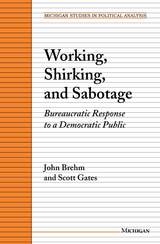

Working Space affords a rare opportunity to view painting from the inside out, through the eyes of one of the world’s most prominent abstract painters. Frank Stella describes his perception of other artists’ work, as well as his own, in this handsomely illustrated volume.
Stella uses the crisis of representational art in sixteenth-century Italy to illuminate the crisis of abstraction in our time. The artists who followed Leonardo, Michelangelo, Raphael, and Titian searched for new directions to advance their work from beneath the shadow of these great painters. Caravaggio pointed the way. So today, Stella believes, the successors to Picasso, Kandinsky, and Pollock must seek a pictorial space as potent as the one Caravaggio developed at the beginning of the seventeenth century. Stella sees Caravaggio as the pivot on whom painting turns, his consummate illusionism prompting the advance of a more flexible, more “real” space that allows painting to move and breathe, to suggest extension and unrestricted motion. Following Caravaggio, Rubens’ broad vision of fullness and active volume gave painting a momentum that helped propel it into the nineteenth century, where it came to rest in the genius of Géricault and Manet, themselves the precursors of modern painting.
Unfortunately, both contemporary abstract art and figurative painting have become trapped by ambiguous pictorial space and by a misguided emphasis on materiality (pigment for pigment’s sake). Pictorial qualities have given way to illustrational techniques. Abstract art has become verbal, defensive, and critical, caught up in theology masquerading as theory. Stella asserts that painting must understand its past, make use of the lucid realism of seventeenth-century Italy, and absorb a Mediterranean physicality to reinforce the lean spirituality of northern abstraction pioneered by Mondrian and Malevich. Working Space will provoke discussion and argument, not least because Stella offers nontraditional evaluations of the works of giants such as Raphael, Titian, Michelangelo, Picasso, and Pollock, as well as lesser-known figures including Annibale Carracci, Paulus Potter, and Morris Louis. The artist’s powers of discernment and the profusion of his ideas and opinions will dazzle and engage professionals, amateurs, and students of art.
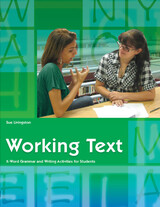
Working Test: X-Word Grammar and Writing Activities for Students features 86 X-Word Grammar reading and writing exercises divided into five parts of increasing complexity. Deaf, second-language, and other students experiencing difficulty with English composition can perform these exercises as homework or as in-class activities. Through these exercises, they can master English grammar, improve their facility with language constructions, and meet the challenges of becoming better writers.
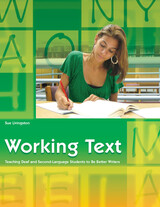
After teaching developmental writing to deaf students for may years, Sue Livingston found that students who can read and analyze written texts become better writers. They achieve their improvement by reading, then writing about what they have read. Livingston has embodied her successful approach in Working Text: Teaching Deaf and Second-Language Students to Be Better Writers.
In this straightforward instructional book, Livingston first explains what is involved and why her methods work with deaf students, second-language students, and other students who need to improve their writing ability. Upon this foundation, Working Text delineates how to teach students to write through reading and writing exercises. These exercises have been carefully crafted using the X-Word Grammar approach to help students discover common language constructions that they can apply to their own writing. As the students progress, their understanding of the elements of good writing will grow.
Working Text also includes all of the exercises and appendices featured in the Working Test: X-Word Grammar and Writing Activities for Students workbook, both in print and on on a special CD. The answers for the exercises are included as well, as are sample quizzes, and the CD can be used in the classroom for interactive lessons in conjunction with the student workbook. Working Text: Teaching Deaf and Second-Language Students to Be Better Writers, in concert with its companion student workbook, will help deaf, second-language, and other students develop into markedly better, more confident writers.
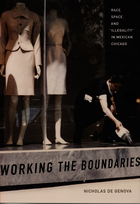
De Genova worked for two and a half years as a teacher of English in ten industrial workplaces (primarily metal-fabricating factories) throughout Chicago and its suburbs. In Working the Boundaries he draws on fieldwork conducted in these factories, in community centers, and in the homes and neighborhoods of Mexican migrants. He describes how the meaning of “Mexican” is refigured and racialized in relation to a U.S. social order dominated by a black-white binary. Delving into immigration law, he contends that immigration policies have worked over time to produce Mexicans as the U.S. nation-state’s iconic “illegal aliens.” He explains how the constant threat of deportation is used to keep Mexican workers in line. Working the Boundaries is a major contribution to theories of race and transnationalism and a scathing indictment of U.S. labor and citizenship policies.
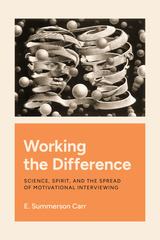
Motivational interviewing (MI) is a professional practice, a behavioral therapy, and a self-professed conversation style that encourages clients to talk themselves into change. Originally developed to treat alcoholics, MI quickly spread into a variety of professional fields including corrections, medicine, and sanitation. In Working the Difference, E. Summerson Carr focuses on the training and dissemination of MI to explore how cultural forms—and particularly forms of expertise—emerge and spread. The result is a compelling analysis of the American preoccupations at MI’s core, from democratic autonomy and freedom of speech to Protestant ethics and American pragmatism.
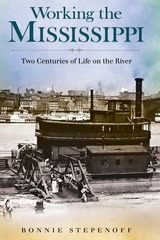
The Mississippi River occupies a sacred place in American culture and mythology. Often called The Father of Rivers, it winds through American life in equal measure as a symbol and as a topographic feature. To the people who know it best, the river is life and a livelihood. River boatmen working the wide Mississippi are never far from land. Even in the dark, they can smell plants and animals and hear people on the banks and wharves.
Bonnie Stepenoff takes readers on a cruise through history, showing how workers from St. Louis to Memphis changed the river and were in turn changed by it. Each chapter of this fast-moving narrative focuses on representative workers: captains and pilots, gamblers and musicians, cooks and craftsmen. Readers will find workers who are themselves part of the country’s mythology from Mark Twain and anti-slavery crusader William Wells Brown to musicians Fate Marable and Louis Armstrong.
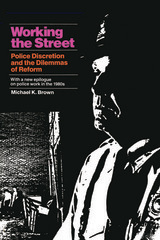
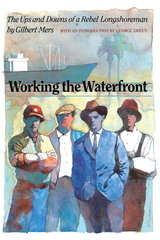
"Somebody said, 'History is written by the winners. The losers have nothing to say.' This book is by one of the losers, a bit player, not the star of the drama." So begins Gilbert Mers in these personal recollections of forty-two years on the Texas waterfront as longshoreman and radical union activist. But far from having "nothing to say," Mers reveals himself as a thoughtful philosopher of democratic ideals and eloquent agitator for union reform. He challenges the conventional wisdom that the leader is more valuable than the led. He contends that long tenure in positions of power dulls the union officer's working-class instincts. Always one to row against the current, Mers believes the union exists for the benefit of its members!
This is primary material of the best kind, vivid and evocative, and Mers, in his eighties at the time of writing the book, is an unusually vigorous and articulate spokesman for a democratic and humane unionism.
Whether he is describing the sweaty, dangerous and back-breaking work of loading cotton bales into the hold of an outbound ship or the gut-gripping tension of a face-to-face encounter with Texas Rangers bent on "law and order," Mers writes with the voice and conscience of the rank-and-file worker. He paints the waterfront world as it was, and perhaps still is—full of danger, humor, dignity in demoralizing circumstances, frustration, struggle, and sometimes hope—and tells his story with such wry humanity that even those who disagree with his destination will enjoy the ride.
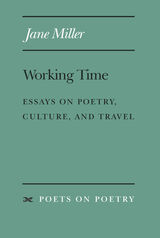
The essays consider notions of time, duration, narrative, documentary, and history in American poetry, and view poetry in the light of developments in feminism, postmodern theory, and contemporary poetic practice. In addition to poetry, Miller investigates a range of cultural products and art forms, including film, video, photography, painting, sculpture, music, and the Madonna phenomenon.

Strategies for engaging key stakeholders—evaluators, researchers, and designers—to discuss frameworks for promoting collaborative change.
Collaborative Change Research, Evaluation, and Design (CCRED) is a framework and collection of participatory practices that engage people and the systems around them to drive community outcomes. This framework emerged out of the recognition that deep participation (or engagement) is frequently missing in collaborative impact approaches. When collaborative change is implemented effectively, community members are viewed as valuable owners and experts instead of being seen as disinterested or unqualified partners.
CCRED is a social action process with dual goals of collective empowerment and the deepening of social knowledge. Executed successfully, CCRED has the potential to increase the rigor, reach, and relevance of research, evaluation, and design translated to meaningful action. Written in an easily accessible, narrative style, Working Together for Change, the fourth volume in the Interdisciplinary Community Engaged Research for Health series edited by Farrah Jacquez and Lela Svedin brings together evaluators, researchers, and designers to describe collaborative change by describing their own work in the space.
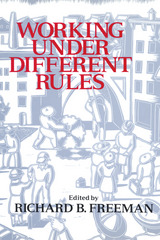

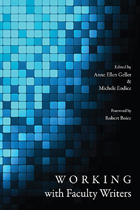
Contributors from a variety of institution types and perspectives consider who faculty writers are and who they may be in the future, reveal the range of locations and models of support for faculty writers, explore the ways these might be delivered and assessed, and consider the theoretical, philosophical, political, and pedagogical approaches to faculty writing support, as well as its relationship to student writing support.
With the pressure on faculty to be productive researchers and writers greater than ever, this is a must-read volume for administrators, faculty, and others involved in developing and assessing models of faculty writing support.

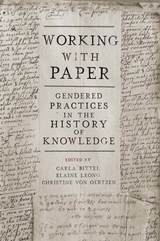
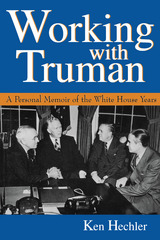
Available for the first time in paperback is the critically acclaimed Working with Truman, a warm and lighthearted memoir of what it was like to work behind the scenes in the White House during Truman's term as president. Focusing on the strengths and weaknesses of those who worked closely with Truman and on the Truman not seen by the public, Hechler provides insight into one of our greatest presidents.

The companion to Working with Water engages students in hands-on exploration. It highlights historical processes and encourages multiple learning styles.

"Water, water, everywhere . . ." Working with Water, the latest in the popular New Badger History series, teaches young readers about the many ways water has shaped Wisconsin’s history, from glaciers to stewardship. It touches on geography and hydrography; transportation networks of Indians and fur traders; the Erie Canal; shipwrecks, lighthouses, shipping, and shipbuilding; fishing, ricing, "pearling" (clamming), and cranberry cultivation; lumbering, milling, and papermaking; recreation, resorts, tourism, and environmentalism.
The companion Teacher’s Guide and Student Materials engages students in hands-on exploration. It highlights historical processes and encourages multiple learning styles.
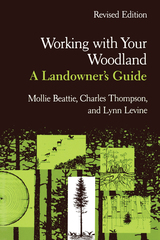
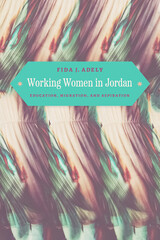
Jordan has witnessed tremendous societal transformation in its relatively short history. Today it has one of the most highly educated populations in the region, and women have outnumbered and outperformed their male counterparts for more than a decade. Yet, despite their education and professional status, many women still struggle to build a secure future and a life befitting of their aspirations.
In Working Women in Jordan anthropologist Fida J. Adely turns to college-educated women in Jordan who migrate from rural provinces to Amman for employment opportunities. Building on twelve years of ethnographic research and extensive interviews with dozens of women, as well as some of their family members, Adely analyzes the effects of developments such as expanded educational opportunities, urbanization, privatization, and the restructuring of the labor market on women’s life trajectories, gender roles, the institution of marriage, and kinship relations. Through these rich narrative accounts and the analysis of broader socio-economic shifts, Adely explains how educational structures can act as both facilitators and obstacles to workforce entry—along with cascading consequences for family and social life. Deeply thorough and compelling, Working Women in Jordan asks readers to think more critically about what counts as development, and for whom.
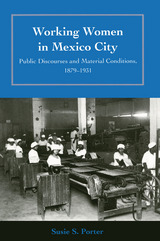
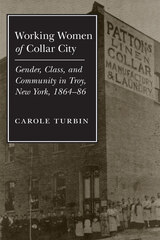
Why have some working women succeeded at organizing in spite of obstacles to labor activity? Under what circumstances were they able to form alliances with male workers?
Carole Turbin explores these and other questions by examining the case of Troy, New York. In the 1860s, Troy produced nearly all the nation's detachable shirt collars and cuffs. The city's collar laundresses were largely Irish immigrants. Their union was officially the nation's first women's labor organization, and one of the best organized. Turbin provides a new perspective on gender and shows that women's family ties are not necessarily a conservative influence but may encourage women's and men's collective action.
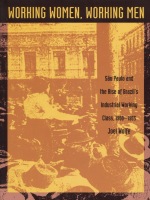
Drawing on a diverse range of sources—oral histories along with union, industry, and government archival materials—Wolfe's account focuses not only on labor leaders and formal Left groups, but considers the impact of grassroots workers' movements as well. He pays particular attention to the role of gender in the often-contested relations between leadership groups and thee rank and file. Wolfe's analysis illuminates how various class and gender ideologies influenced the development of unions, industrialists' strategies, and rank-and-file organizing and protest activities.
This study reveals how workers in Sào Paulo maintained a local grassroots social movement that, by the mid–1950s, succeeded in seizing control of Brazil's state-run official unions. By examining the actions of these workers in their rise to political prominence in the 1940s and 1950s, this book provides a new understanding of the sources and development of populist politics in Brazil.

Are you looking for a career with professional rewards and personal satisfaction? Perhaps you'd like to find meaningful employment in the field of international relations? Working World is the perfect resource for making sound career choices, and is particularly valuable for those interested in exploring a career in international education, exchange, and development.
Sherry Mueller, president emeritus of a large nonprofit organization with an international focus, and Mark Overmann, a young professional on his way up, serve as spirited guidance counselors and offer valuable insight on launching a career, not just landing a job. The two authors—representing contrasting personalities, levels of experience, and different generations—engage in an entertaining dialogue designed to highlight alternative approaches to the same destination: making a difference in the world. With a rich mix of anecdotes and advice, the two authors present their individual perspectives on career development: identifying your cause, the art of networking, the value of mentors, and careers as "continuous journeys." Mueller and Overmann push job seekers to challenge assumptions about what it means to pursue a career in international relations and to recognize that the path to career success is rarely straight.
To help the job seeker chart the best course, Working World provides specific resources including annotated lists of selected organizations, websites, and further reading. Profiles of twelve professionals, from promising young associates to presidents and CEOs, illustrate the book's main topics. Each professional provides insight into his or her career choices, distills lessons learned, and offers practical advice about building a career in international affairs. All of these resources were chosen specifically to help job seekers map the next steps toward the internship, job, or other opportunity that will give shape to the career they envision.
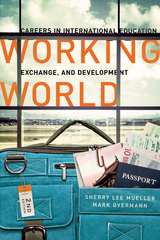
Now available in a new second edition, Working World: Careers in International Education, Exchange, and Development offers an engaging guide for cause-oriented people dedicated to begin or enhance careers in the now burgeoning fields of international affairs. Mueller and Overmann expand their original dialogue between a career veteran and a young professional to address issues that recognize the meteoric rise of social media and dramatic geopolitical events. They explore how the idea of an international career has shifted: nearly every industry taking on more and more international dimensions, while international skills—linguistic ability, intercultural management, and sensitivity—become ever more highly prized by potential employers.
This second edition of Working World offers ten new and four significantly updated profiles as well as new and expanded concepts that include work-life balance, the importance of informational interviews, moving on, and key building blocks for international careers.Like the award-winning first edition, Working World is a rare and valuable resource to students and graduates interested in careers in international affairs, mid-career professionals who want to make a career change or shift, as well as guidance counselors and career center specialists at universities.
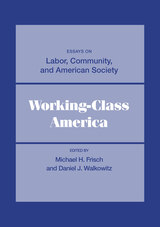
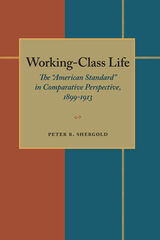
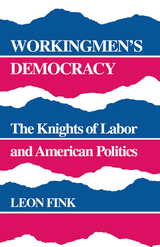
Runner-up in both the John H. Dunning Prize and Albert J. Beveridge Award competitions
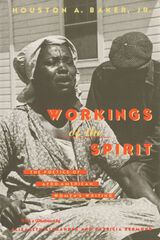
"Brilliant, and tenderly riveted to gratitude as an indispensable facet of analysis, Houston Baker arrives, yet again, bearing the loveliest flowers of his devotion and delight: thank God he's here!"—June Jordan
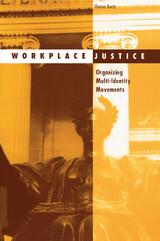
An unheralded union battle offers new insight into identity politics.
In 1991, Columbia University’s one thousand clerical workers launched a successful campaign for justice in their workplace. This diverse union-two-thirds black and Latina, three-fourths women-was committed to creating an inclusive movement organization and to fighting for all kinds of justice. How could they address the many race and gender injustices members faced, avoid schism, and maintain the unity needed to win? Sharon Kurtz, an experienced union activist and former clerical worker herself, was welcomed into the union and pursued these questions. Using this case study and secondary studies of sister clerical unions at Yale and Harvard, she examines the challenges and potential of identity politics in labor movements.
With the Columbia strike as a point of departure, Kurtz argues that identity politics are valuable for mobilizing groups, but often exclude members and their experiences of oppression. However, Kurtz believes that identity politics should not be abandoned as a component in building movements, but should be reframed-as multi-identity politics. In the end she shows an approach to organizing with great potential impact not only for labor unions but for any social movement.
The best kind of learning is that which never ends—and a culture of training means that staff will be more flexible and responsive to new ideas and strategies, imperative in today's libraries. In this practical resource, leading workplace trainers Reed and Signorelli offer guidance on improving the effectiveness of training programs. Their book takes readers through the entire process of developing, implementing, and sustaining training programs and communities of learning, in order to
- Empower individuals to become leaders and teachers by cultivating a culture of ongoing learning
- Connect library staff and users to information resources so they can effectively use them to their benefit
- Develop skills among both managers and workers for practicing continuous formal and informal training
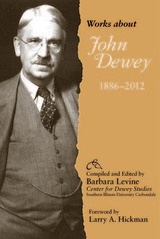
Works of John Dewey, 1886–2012 is an invaluable and meticulously compiled resource for the growing number of scholars and researchers seeking a deeper understanding of the work of the prominent American philosopher, psychologist, and educational reformer.
Dewey (1859–1952), an influential philosopher credited with the founding of pragmatism and also recognized as a pioneer in functional psychology and the progressive moment in education, was hailed by Life magazine in 1990 as one of the one hundred most important Americans of the twentieth century. This rich and continually expanding compendium of historical and more recent essays, research, and references is a testament to the growing interest in Dewey’s intellectual work and his measurable impact in the United States and throughout the world.
In Works of John Dewey, 1886–2012, some four thousand new entries are presented in ebook format, in addition to those from earlier print and electronic editions dating back to 1995. Copies of most of the works have been obtained and are stored at the Center for Dewey Studies. For the first time, users can access all items from all editions in one user-friendly format. Jump links to alphabetical sections facilitate movement through the vast collection of entries. Users can search by keyword and author.
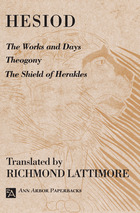
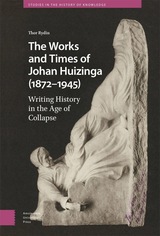
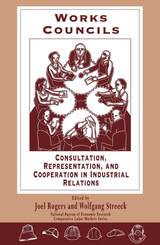
Works councils—institutionalized bodies for representative communication between an employer and employees in a single workplace—are rare in the Anglo-American world, but are well-established in other industrialized countries. The contributors to this volume survey the history, structure, and functions of works councils in the Netherlands, Germany, France, Spain, Sweden, Italy, Poland, Canada, and the United States. Special attention is paid to the relations between works councils and unions and collective bargaining, works councils and management, and the role and interest of governments in works councils. On the basis of extensive comparative data from other Western countries, the book demonstrates powerfully that well-designed works councils may be more effective than labor unions at solving management-labor problems.
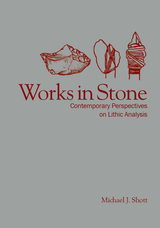
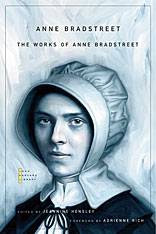

Anne Bradstreet, the first true poet in the American colonies, wrote at a time and in a place where any literary creation was rare and difficult and that of a woman more unusual still. Born in England and brought up in the household of the Earl of Lincoln where her father, Thomas Dudley, was steward, Anne Bradstreet sailed to Massachusetts Bay in 1630, shortly after her marriage at sixteen to Simon Bradstreet. For the next forty years she lived in the New England wilderness, raising a family of eight, combating sickness and hardship, and writing the verse that made her, as the poet Adrienne Rich says in her Foreword to this edition, "the first non-didactic American poet, the first to give an embodiment to American nature, the first in whom personal intention appears to precede Puritan dogma as an impulse to verse."
All Anne Bradstreet's extant poetry and prose is published here with modernized spelling and punctuation. This volume reproduces the second edition of Several Poems, brought out in Boston in 1678, as well as the contents of a manuscript first printed in 1857. Adrienne Rich's Foreword offers a sensitive and illuminating critique of Anne Bradstreet both as a person and as a writer, and the Introduction, scholarly notes, and appendices by Jeannine Hensley make this an authoritative edition.
Adrienne Rich observes, "Intellectual intensity among women gave cause for uneasiness" at this period--a fact borne out by the lines in the Prologue to the early poems: "I am obnoxious to each carping tongue/ Who says my hand a needle better fits." The broad scope of Anne Bradstreet's own learning and reading is most evident in the literary and historical allusions of The Tenth Muse, the first edition of her poems, published in London in 1650. Her later verse and her prose meditations strike a more personal note, however, and reveal both a passionate religious sense and a depth of feeling for her husband, her children, the fears and disappointments she constantly faced, and the consoling power of nature. Imbued with a Puritan striving to turn all events to the glory of God, these writings bear the mark of a woman of strong spirit, charm, delicacy, and wit: in their intimate and meditative quality Anne Bradstreet is established as a poet of sensibility and permanent stature.




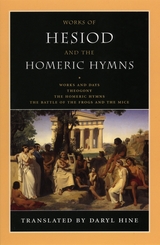
In Works of Hesiod and the Homeric Hymns, highly acclaimed poet and translator Daryl Hine brings to life the words of Hesiod and the world of Archaic Greece. While most available versions of these early Greek writings are rendered in prose, Hine's illuminating translations represent these early classics as they originally appeared, in verse. Since prose was not invented as a literary medium until well after Hesiod's time, presenting these works as poems more closely approximates not only the mechanics but also the melody of the originals.
This volume includes Hesiod's Works and Days and Theogony, two of the oldest non-Homeric poems to survive from antiquity. Works and Days is in part a farmer's almanac—filled with cautionary tales and advice for managing harvests and maintaining a good work ethic—and Theogony is the earliest comprehensive account of classical mythology—including the names and genealogies of the gods (and giants and monsters) of Olympus, the sea, and the underworld. Hine brings out Hesiod's unmistakable personality; Hesiod's tales of his escapades and his gritty and persuasive voice not only give us a sense of the author's own character but also offer up a rare glimpse of the everyday life of ordinary people in the eighth century BCE.
In contrast, the Homeric Hymns are more distant in that they depict aristocratic life in a polished tone that reveals nothing of the narrators' personalities. These hymns (so named because they address the deities in short invocations at the beginning and end of each) are some of the earliest examples of epyllia, or short stories in the epic manner in Greek.
This volume unites Hine's skillful translations of the Works of Hesiod and the Homeric Hymns—along with Hine's rendering of the mock-Homeric epic The Battle of the Frogs and the Mice—in a stunning pairing of these masterful classics.
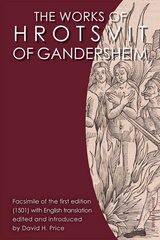
These works by a tenth-century woman, who wrote plays when no one else in Europe was writing plays and who imitated the style of Terence when most people thought the classics had been forgotten, caused a literary sensation when they were first published in 1501.


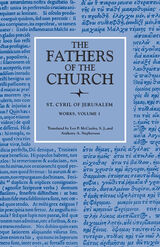
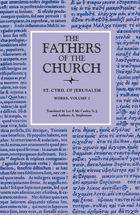
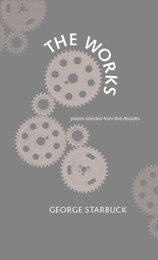
Eighty-one poems spanning the career of the late George Starbuck, widely praised luminary of modern American verse.
Starbuck was known in his lifetime and is remembered today as a practitioner of verse remarkable for its pathos, intelligence, and wit. A master of American vernacular, sensitive to the rhythms of everyday speech, Starbuck was also a brilliant lyricist, at once erudite and irreverent. He addressed some of the most profound issues of his day with a playful ingenuity and a virtuosity of talent that Glyn Maxwell, poetry editor of the New Republic, writing in The Oxford Companion to Twentieth Century Poetry, calls a "veritable arsenal of strategies against the darkness."
Starbuck came to wide critical notice in 1960 with the publication of his first book, Bone Thoughts, which won the Yale Series of Younger Poets prize. He published work regularly in the New Yorker and other major literary journals in the United States. His work was consistently recognized with awards, among them the Prix de Rome, an Ingram-Merrill Fellowship, a Rockefeller Foundation Fellowship, the Beth Hokin Prize, a Notable Book of the Year designation from the New York Times, the Lenore Marshall poetry prize, and an Aiken-Taylor Lifetime Achievement Award.
Grouped together by decades, the poems reveal Starbuck's developing genius. His technical agility and his singular voice are evident. As Anthony Hecht declares in his foreword, "I come to this posthumous collection with serene and justified confidence in finding enormous pleasure, astonishment, admiration, and genuine satisfaction. [This book] is a generous sampling of a profound poetic legacy, one for which readers ought to be deeply grateful."
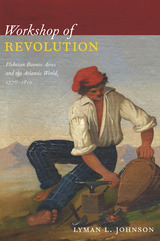
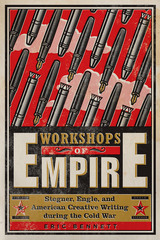
Creative writing emerged as a graduate discipline in the United States amid this astonishing swirl of grand conceptions. The early workshops were formed not only at the time of, but in the image of, and under the tremendous urgency of, the postwar imperatives for the humanities. Vivid renderings of personal experience would preserve the liberal democratic soul—a soul menaced by the gathering leftwing totalitarianism of the USSR and the memory of fascism in Italy and Germany.
Workshops of Empire explores this history via the careers of Paul Engle at the University of Iowa and Wallace Stegner at Stanford. In the story of these founding fathers of the discipline, Eric Bennett discovers the cultural, political, literary, intellectual, and institutional underpinnings of creative writing programs within the university. He shows how the model of literary technique championed by the first writing programs—a model that values the interior and private life of the individual, whose experiences are not determined by any community, ideology, or political system—was born out of this Cold War context and continues to influence the way creative writing is taught, studied, read, and written into the twenty-first century.
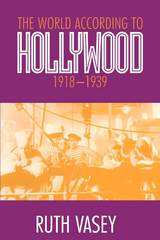
Ruth Vasey shows how the Motion Picture Producers and Distributors of America (MPPDA), by implementing such strategies as the industry’s Production Code, ensured that domestic and foreign distribution took place with a minimum of censorship or consumer resistance. Drawing upon MPPDA archives, studio records, trade papers, and the records of the U.S. Department of Commerce, Vasey reveals the ways the MPPDA influenced the representation of sex, violence, religion, foreign and domestic politics, corporate capitalism, ethnic minorities, and the conduct of professional classes.
Vasey is the first scholar to document fully how the demands of the global market frequently dictated film content and created the movies’ homogenized picture of social and racial characteristics, in both urban America and the world beyond. She uncovers telling evidence of scripts and treatments that were abandoned before or during the course of production because of content that might offend foreign markets. Among the fascinating points she discusses is Hollywood’s frequent use of imaginary countries as story locales, resulting from a deliberate business policy of avoiding realistic depictions of actual countries. She argues that foreign governments perceived movies not just as articles of trade, but as potential commercial and political emissaries of the United States. Just as Hollywood had to persuade its domestic audiences that its products were morally sound, its domination of world markets depended on its ability to create a culturally and politically acceptable product.
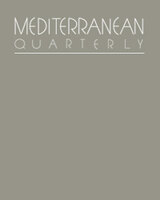
Contributors from the Mediterranean Basin and the U.S.—both supporters and critics of U.S. foreign policy in pre- and postwar Iraq—investigate the U.S.’s “war on terrorism” and its associated concept of “preemptive war” as viable political strategies. Other essays weigh the ramifications of recent U.S. foreign policy in the Middle East for the institutions that have governed international relations since World War II and consider the political, social, and economic costs of this policy both for the U.S. itself and for the countries it targets.
Contributors. Stephen C. Calleya, Vincent M. Cannistraro, Ted Galen Carpenter, Mohamed A. El-Khawas, Ivan Eland, William H. Lewis, Raymond Muhula, Bernard Reich, Burton M. Sapin, Joseph J. Sisco, Nikolaos A. Stavrou, Stansfield Turner
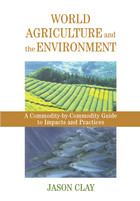
World Agriculture and the Environment presents a unique assessment of agricultural commodity production and the environmental problems it causes, along with prescriptions for increasing efficiency and reducing damage to natural systems. Drawing on his extensive travel and research in agricultural regions around the world, and employing statistics from a range of authoritative sources including the United Nations Food and Agriculture Organization, the author examines twenty of the world’s major crops, including beef, coffee, corn, rice, rubber, shrimp, sorghum, tea, and tobacco. For each crop, he offers comparative information including:
• main producing and consuming countries
• main types of production
• market trend information and market chain analyses
• major environmental impacts
• management strategies and best practices
• key contacts and references
READERS
Browse our collection.
PUBLISHERS
See BiblioVault's publisher services.
STUDENT SERVICES
Files for college accessibility offices.
UChicago Accessibility Resources
home | accessibility | search | about | contact us
BiblioVault ® 2001 - 2024
The University of Chicago Press



